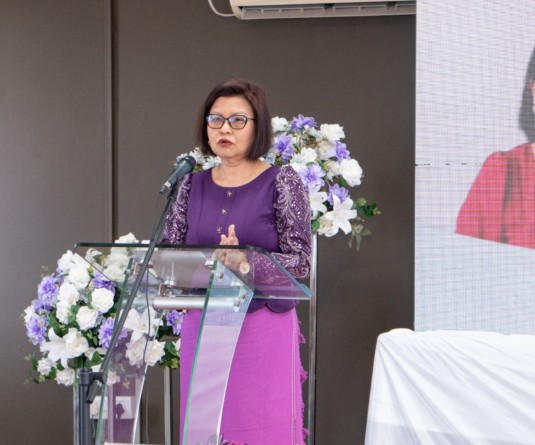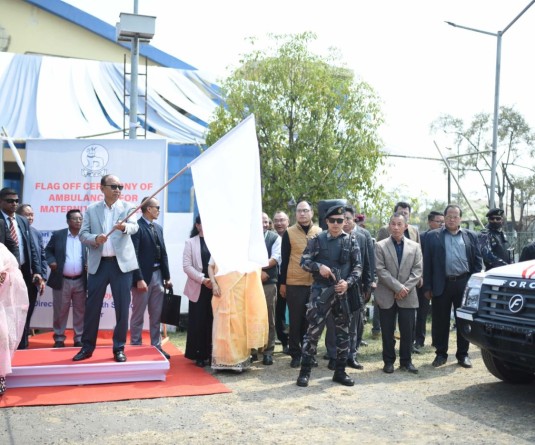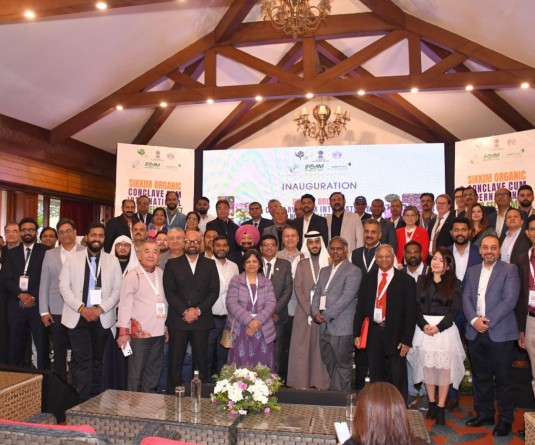
Newmai News Network
Imphal | May 2
The United Naga Council (UNC) has urged the Governor of Manipur to reinstate the Free Movement Regime (FMR) in Naga-inhabited border areas and to halt the construction of fencing along the Indo-Myanmar border, which it described as being imposed across the "artificial borderline" cutting through Naga homeland.
A delegation of the UNC, led by its president Ng Lorho, met Manipur Governor Ajay Kumar Bhalla at the Raj Bhavan in Imphal on Friday and submitted a memorandum detailing their concerns, UNC leaders informed Newmai News Network.
The UNC cited the Ministry of Home Affairs (MHA) notification of September 26, 1950, and the 1952 Indo-Burma Treaty, which provided for free movement for people living within 40 km on either side of the border. It also referred to the Free Movement Regime established in the 1970s and last revised in 2018 under the Government of India’s Act East Policy, allowing cross-border travel up to 16 km without a visa for 72 hours with valid permits.
According to the UNC, the MHA’s scrapping of the FMR on February 8, 2024, has disrupted historical, cultural, and familial ties between Naga communities residing across the border. “Our livelihoods are significantly interwoven with cross-border interactions,” the memorandum stated, adding that essential activities such as emergency medical treatment, education, seasonal agriculture, and funerals have been adversely affected.
The UNC also invoked Article 36 of the UN Declaration on the Rights of Indigenous Peoples (2007), which upholds the right of indigenous communities separated by international borders to maintain cross-border relations.
Highlighting the ethnic connections among Naga groups such as the Tangkhul, Anal, Moyon, Lamkang, and Maring across Manipur’s Ukhrul and Chandel districts and Myanmar’s Sagaing region, the UNC asserted that the delineation of the Indo-Myanmar border in 1967 was carried out without the informed consent of affected villagers and has left many as minorities on either side.
The memorandum condemned the border fencing, which the UNC claimed would further bifurcate indigenous Nagas. It also warned of ecological impacts, stating that the proposed 80-km stretch of fencing in Tengnoupal and Chandel districts violates international environmental laws, including the Convention on Migratory Species, as it would block animal migrations and disrupt biodiversity.
The UNC described the government’s reasoning behind the fencing—citing illegal immigration, drug smuggling, and arms trafficking—as a “lop-sided narrative.” It said such issues are not prevalent in Naga areas and accused the authorities of targeting peaceful zones.
On the district reorganisation issue, the UNC reiterated its demand for the rollback of the seven new districts created by the Manipur government on December 8, 2016, calling the move arbitrary and unilateral. The council recalled its 139-day economic blockade and multiple rounds of tripartite talks with the state and central governments, which were based on previous agreements that were allegedly violated.
While expressing continued faith in the tripartite process, the UNC questioned the sincerity of the state government, pointing to a government letter listing 'Kangpokpi' as an Autonomous District Council (ADC), even though no such ADC exists officially. The UNC said such actions undermine the spirit of ongoing negotiations.
The UNC urged the Governor to intervene personally in both the FMR and district rollback issues, warning that continued disregard of Naga concerns would only deepen mistrust. “Your positive response on these matters will be highly appreciated,” the memorandum stated.





.jpg)
